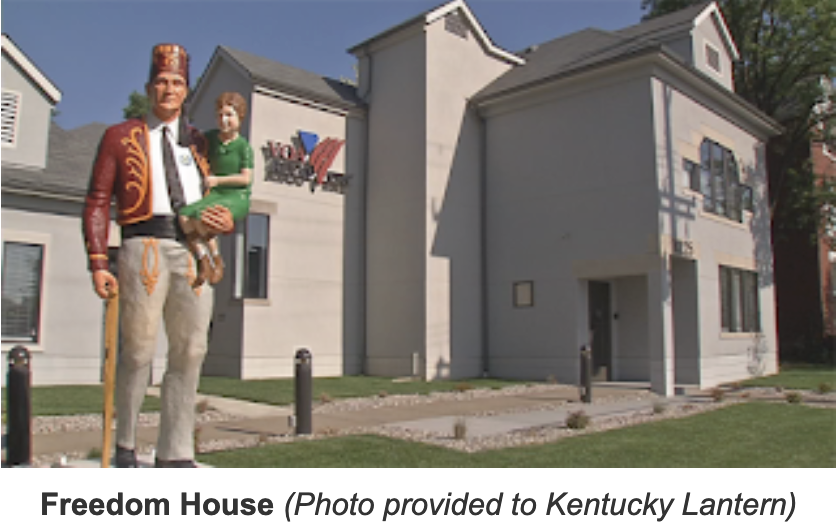Program for mothers and pregnant women with substance-use disorder gets grant to help more Black women get its services Freedom House

By Sarah Ladd
Kentucky Lantern
The Volunteers of America chapter that includes Kentucky will spend $123,000 over the next nine months to figure out how to get more Black women into treatment for substance-use disorder.
Volunteers of America Mid-States received the money from the Kentucky Association of Health Plans, the trade group for health insurers in the state, to fund a new initiative called Access Justice.
With the grant money, scholar, writer and activist Brandy Kelly Pryor will evaluate VOA’s Freedom House, which is a program for “pregnant and parenting women” who have substance-use disorders. Her report is due in April.
The 31-year-old program, with locations in Louisville and Manchester, also lets minor children (under the age of 18) stay with their mothers during treatment. Kelly Pryor will primarily study Louisville and may branch out elsewhere at later.
Jennifer Hancock, president and CEO of Volunteers of America Mid-States, said this move is in direct response to the high rates of maternal mortality among Black women and the disproportionately high overdose rates among Black Kentuckians.
Kentucky overdose deaths decreased in 2023 for the second year in a row, according to the state’s Drug Overdose Fatality Report.
In 2022, 2,135 Kentuckians died from an overdose, marking the first decline since 2018. Ninety percent of those deaths were from opioids and/or fentanyl.
In 2023, the number of fatal overdoses was down to 1,984. Fentanyl, a powerful synthetic opioid, was involbved in 1,570 of those — about 79% of the 2023 deaths. The 35-44 age group was most at risk, the report shows. Methamphetamine was involved in 55% of 2023’s overdose deaths.
Despite the overall decrease in the state, the number of Black Kentuckians who died from a drug overdose increased from 259 in 2022 to 264 in 2023.
A 2023 state report on maternal mortality also showed substance-use disorder contributed to nearly 60% of all maternal deaths. Most maternal deaths in Kentucky, 88%, are preventable, says the report from the state Cabinet for Health and Family Services.
Black partcipants at Freedom House’s Kentucky locations are less likely to complete its program than those of other races, Hancock said.
“I think some of it is about the stigma that they face coming into treatment,” Hancock said. “I think that there could be some cultural and familial pressures that they experience disproportionately.”
Kelly Pryor’s study is expected to provide answers as to why Black Kentuckians leave the Freedom House program without completing it, she said.
“Women, generally speaking, have to be convinced that they deserve treatments and that they are worthy of getting this help and support versus trying to do it on their own,” Hancock said.
In her analysis, Kelly Pryor will “identify gaps in care and opportunities for improvement, ensuring that substance-use-disorder recovery services are equitable and accessible for everyone who needs them,” VOA said. The nonprofit will then come up with plans to fill any gaps in care and access.
Hancock doesn’t know if the solution will be “an internal-to-VOA process that needs to be improved, or if it’s more of a public campaign that we need to wage to reassure Black women that they’re worthy of treatment, that treatment is a place where they can feel supported and feel seen and heard.”
The measure of success, Hancock said, will be when VOA and Freedom House start seeing “better engagement rates of Black women” and higher program completion rates.
Kelly Pryor said in a prepared statement, “Building on principles of healing justice, we will ensure a process that facilitates those most affected, leading us toward the best solutions for recovery and prevention. This effort will take time and involve critical self-reflection, yet the return will have an indelible impact on Kentucky and beyond.”